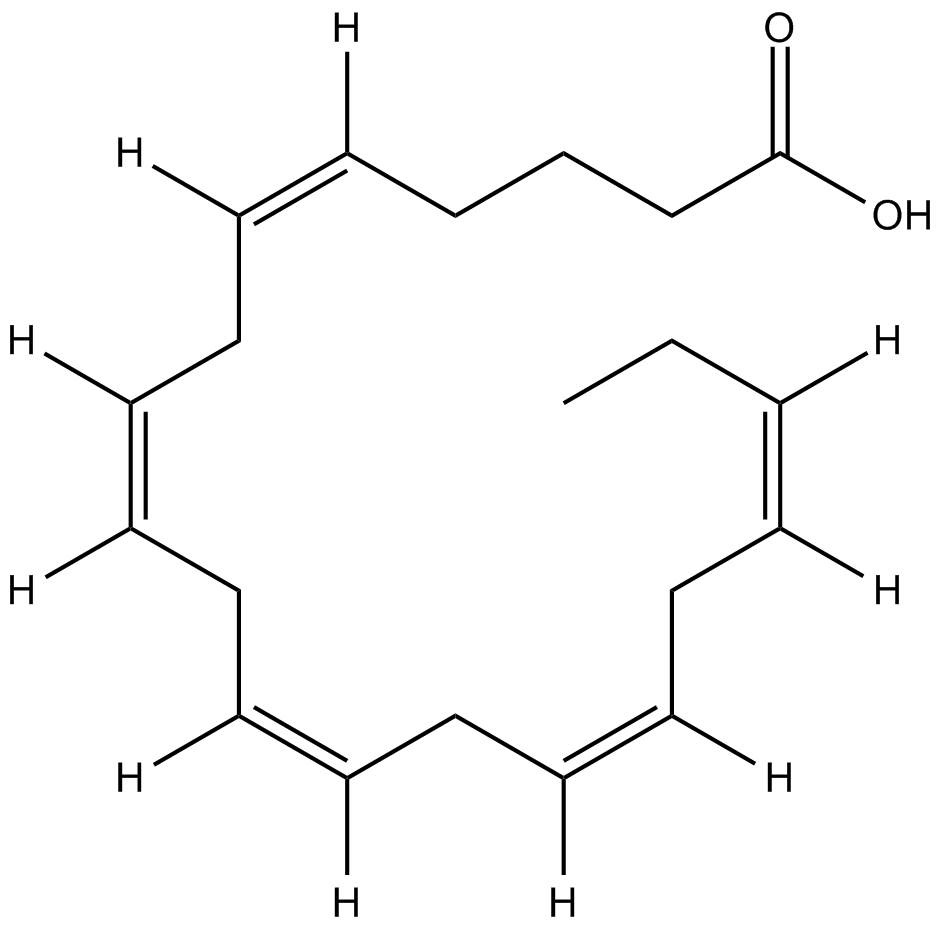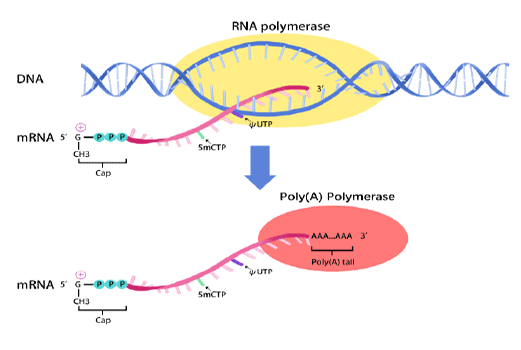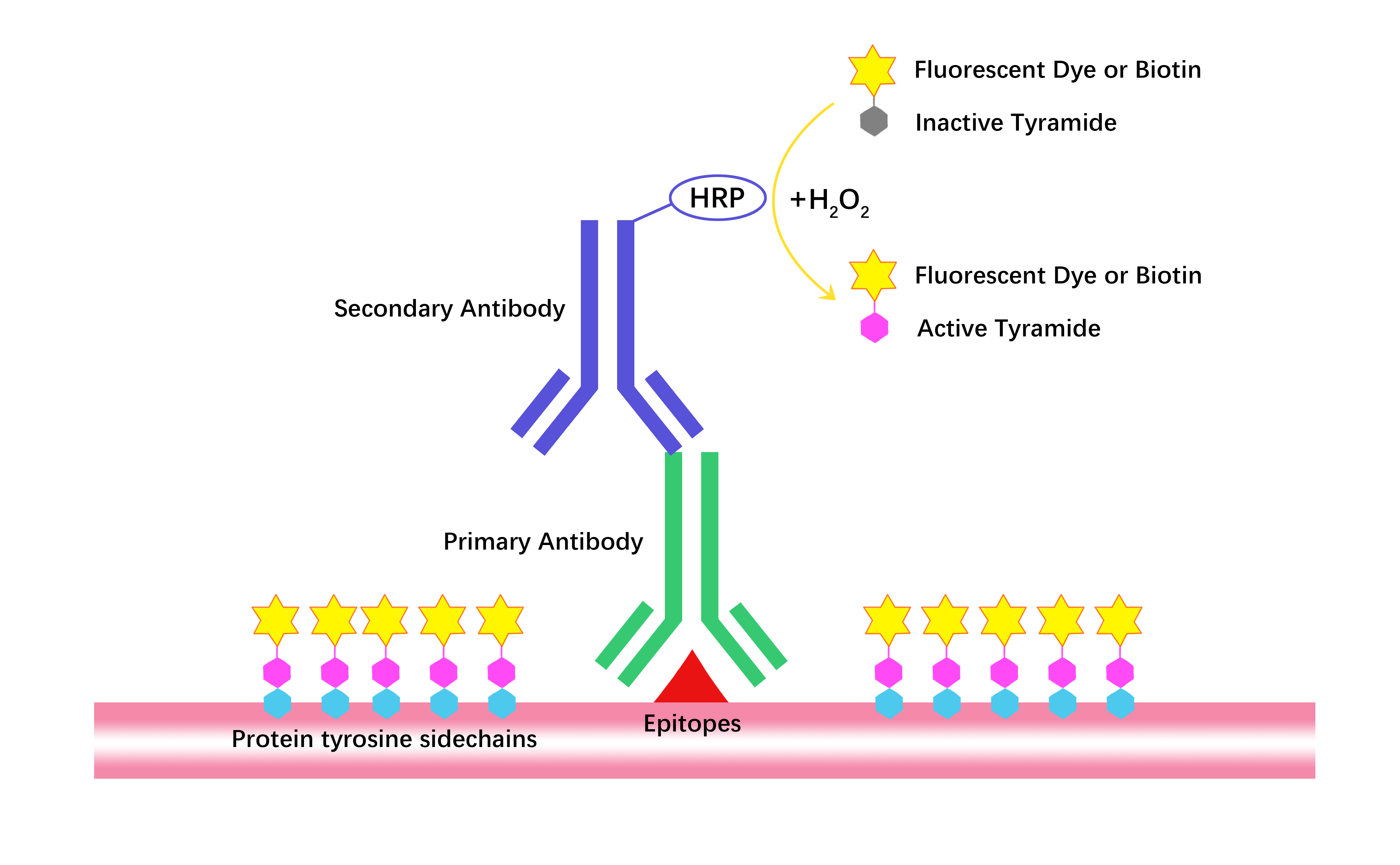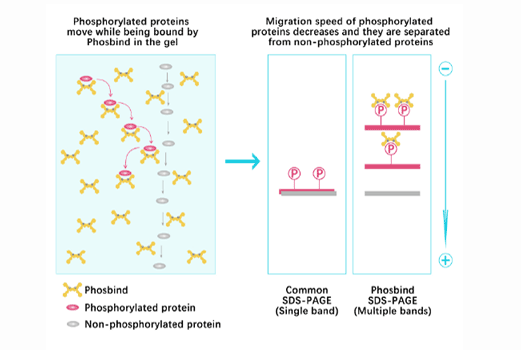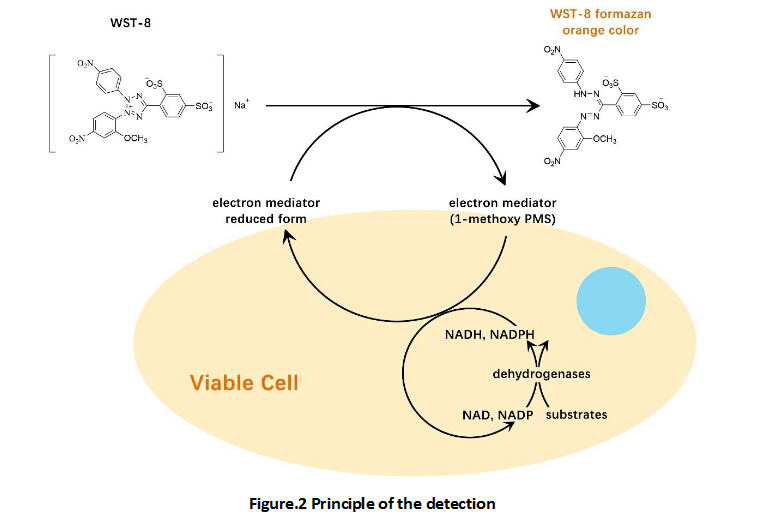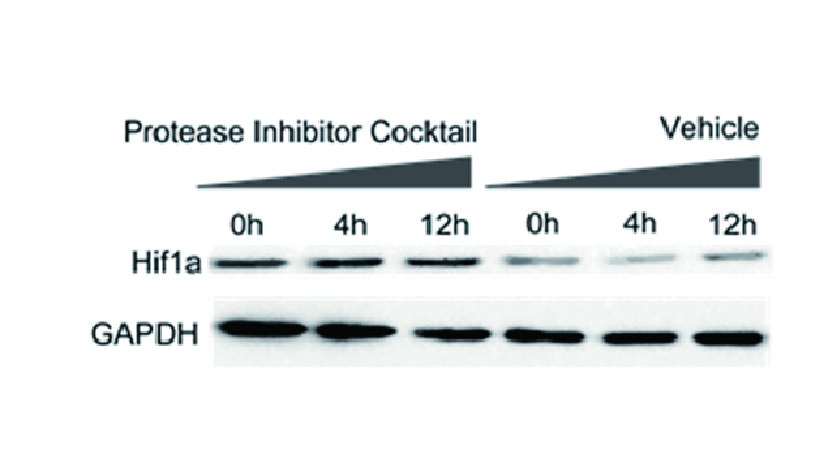Eicosapentaenoic Acid
Eicosapentaenoic acid (EPA; CAS 10417-94-4) is an omega-3 polyunsaturated fatty acid (n-3 PUFA) extensively studied in cardiovascular research for its lipid-lowering and anti-inflammatory properties. Its mechanism involves incorporation into cell membranes, altering lipid composition and affecting membrane protein functions. EPA inhibits endothelial cell migration and cytoskeletal rearrangements in vitro at concentrations of about 100 μM. Furthermore, EPA (1-5 μM) shows dose-dependent inhibition of very large density lipoprotein oxidation. Dietary EPA enhances prostaglandin I? production in human subjects, suggesting protective cardiovascular effects.
| Physical Appearance | A yellow oil |
| Storage | Store at -20°C |
| M.Wt | 302.45 |
| Cas No. | 10417-94-4 |
| Formula | C20H30O2 |
| Solubility | ≥116.8 mg/mL in DMSO; ≥49.3 mg/mL in H2O; ≥52.5 mg/mL in EtOH |
| Chemical Name | (5Z,8Z,11Z,14Z,17Z)-icosa-5,8,11,14,17-pentaenoic acid |
| SDF | Download SDF |
| Canonical SMILES | CC/C=C\C/C=C\C/C=C\C/C=C\C/C=C\CCCC(O)=O |
| Shipping Condition | Small Molecules with Blue Ice, Modified Nucleotides with Dry Ice. |
| General tips | We do not recommend long-term storage for the solution, please use it up soon. |
Quality Control & MSDS
- View current batch:
Chemical structure
